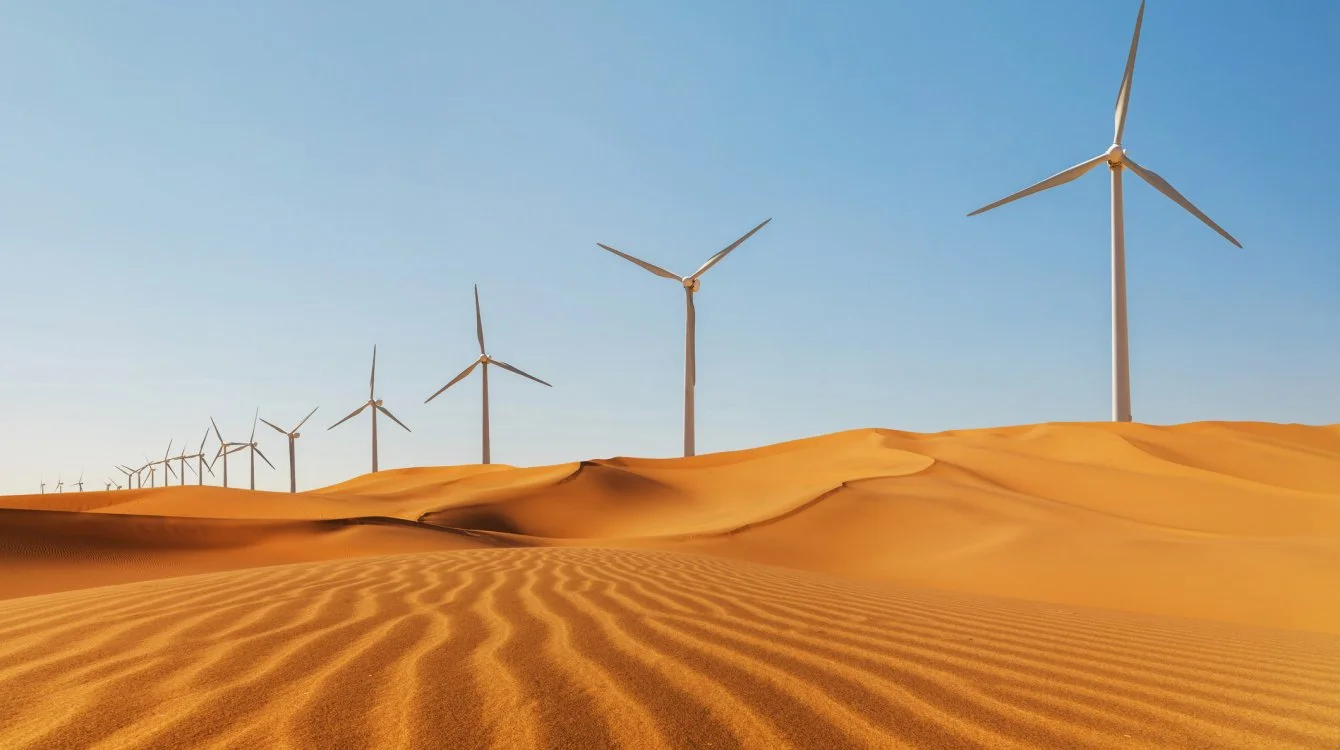Banking on Africa's Renewable Energy Future
As the world grapples with the growing urgency of the climate crisis, Africa occupies an increasingly important position – with the potential to shape the direction of the global energy transition.
While the international community has long lamented Africa's disproportionate vulnerability to climate change, a string of multilateral fora – including the inaugural Africa Climate Summit and the upcoming Climate Week NYC, UNGA High-Level Week, and COP28 – have thrust the continent into the limelight. This growing attention underscores Africa's potential to become a linchpin in the fight against the climate crisis.
With its abundant reserves of critical minerals, like cobalt essential for electric vehicle batteries, and an unmatched wealth of solar resources, Africa is a veritable treasure trove of clean energy potential. Yet, starkly contrasting this potential is a disheartening reality: Africa receives a paltry 2% of global investments in clean energy – a paradox that needs to be broken. This Insights explores Africa’s increasingly important role in the global energy transition.
Africa's Energy Landscape
Africa's current energy mix, though laden with potential, presents a stark contrast to its promise. Fossil fuels still dominate, accounting for a staggering 77% of the continent's total energy supply. Conversely, renewables like wind, solar, and geothermal make up only a marginal share. This energy imbalance not only exacerbates environmental concerns but also perpetuates energy access disparities, leaving millions without reliable access to electricity.
Africa's burgeoning population, urbanisation, and industrialisation are driving an exponential rise in energy demand, further underscoring the need for a transition towards clean, sustainable energy sources. Countries like Kenya, Namibia, and South Africa are already setting ambitious renewable energy targets, harnessing their abundant solar and wind resources.
Additionally, Africa's vast reserves of critical minerals, including cobalt, manganese, and lithium, position the continent to play a pivotal role in the global energy transition. These minerals are vital for energy storage and electric vehicles, aligning with the world's shift towards cleaner transportation solutions. Effective natural capital mapping and mineral exploration are of course vital to unlock these reserves. In a recent white paper titled "The Strategic Importance of Natural Capital Mapping and Mineral Exploration in the Energy Transition," Xcalibur Multiphysics provides valuable insights into how effective natural capital mapping and mineral exploration can contribute to a sustainable and resilient energy future. The report delves into crucial topics, including the role of mineral exploration in a low-carbon economy and the importance of mapping natural capital in informed decision-making. Click here to read Xcalibur’s report.
Investment Opportunities and Challenges
Africa's renewable energy potential is undeniable, yet it remains largely untapped. One of the major impediments is the exorbitant cost of capital for clean energy projects, which can be two to three times higher than in advanced economies. This financial barrier hinders developers from pursuing economically viable projects capable of delivering affordable energy solutions to the continent's growing population.
The financing landscape for renewable energy projects in Africa is changing, however, driven by the necessity to find alternatives to historically reliable but increasingly unsustainable sovereign guarantees. The traditional model of relying on countries to provide such guarantees has faced challenges due to mounting debt burdens and shifting economic priorities. However, this challenge has spurred innovation, giving rise to energy intermediaries. These intermediaries, as advocated in a recent report by CrossBoundary, are becoming integral in securing offtake agreements and enhancing the bankability of renewable energy projects. To realise the full potential of these nascent business models, CrossBoundary advocates that development finance institutions (DFIs) must adapt their roles and embrace a higher risk appetite by redirecting their focus towards supporting these intermediaries. By doing so, DFIs can play a pivotal role in mobilising domestic financing for clean energy initiatives, bolstering the performance of vital power pools, and expanding the capital pool available for renewable energy projects. Click here to read CrossBoundary’s report.
Companies like Africa GreenCo Group are also facilitating the growth of renewable energy markets in Africa. Through its operating entity GreenCo Power Services Limited, GreenCo acts as an intermediary, streamlining the process between renewable energy project developers and utilities, thereby making energy markets more efficient and bankable. By providing credit support and risk mitigation mechanisms, GreenCo is alleviating some of the financial burdens and uncertainties that have traditionally hindered the growth of clean energy projects across the continent. Earlier this month, Invest Africa spoke to Ana Hajduka, Founder & CEO, at Africa GreenCo to discuss how the company is ensuring the bankability of renewable energy projects, fostering private investment in the African energy sector, and expanding its footprint across the continent. Click here to read our interview with GreenCo.
Conclusion
Africa's role in the global energy transition is not just a matter of necessity but one of great promise. With vast renewable energy resources, critical minerals, and a growing commitment to sustainability from both the public and private sectors, the continent can be a driving force in combating climate change. While the challenges ahead are formidable, the groundswell of momentum is palpable, bolstered by the emergence of innovative solutions and new climate-smart partnerships. We look forward to continuing our work with members and partners like Xcalibur Multiphysics, CrossBoundary, and GreenCo to ensure Africa increasingly becomes a driving force towards a cleaner, more resilient energy future for all.

